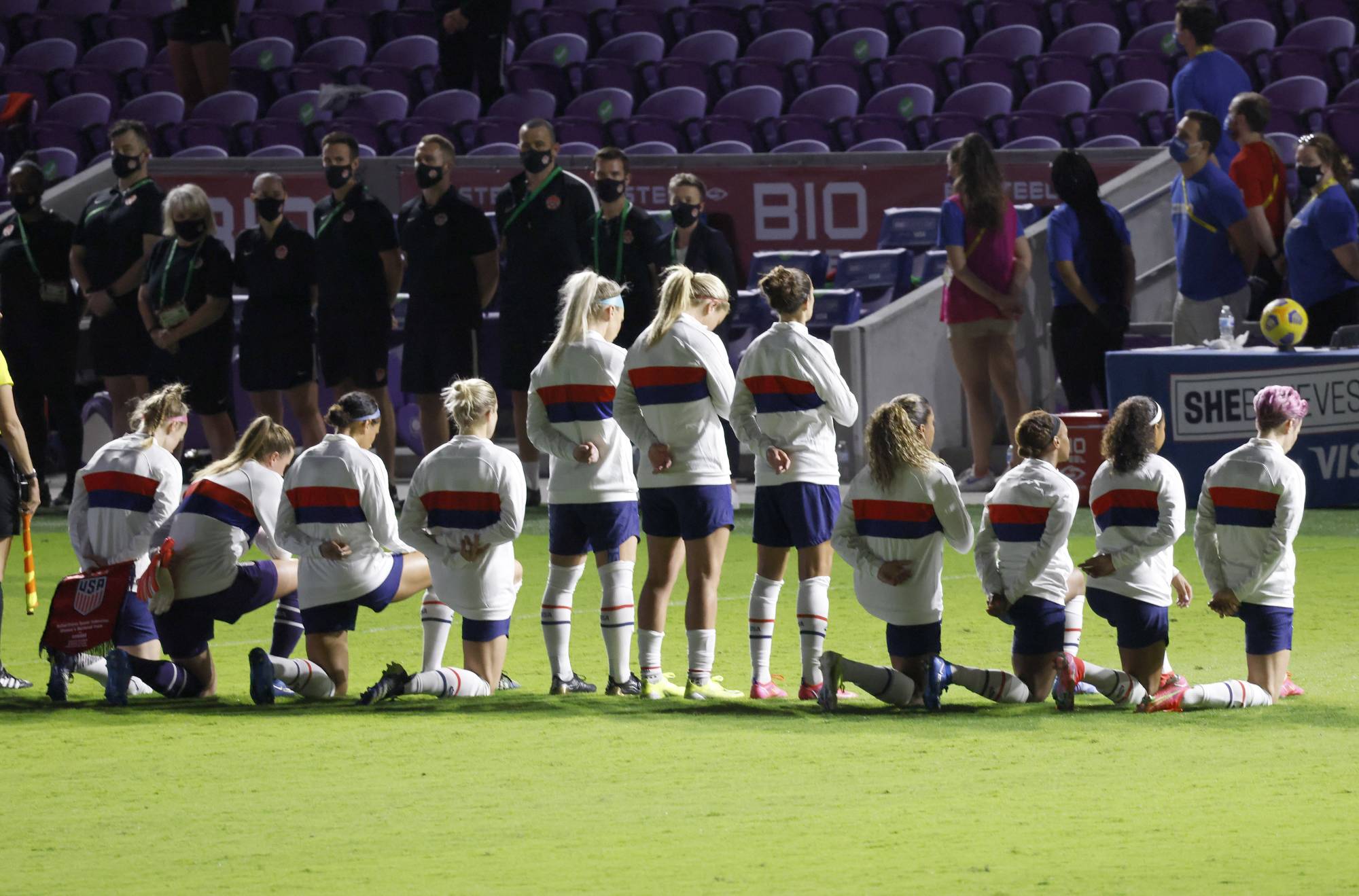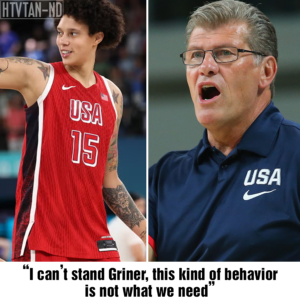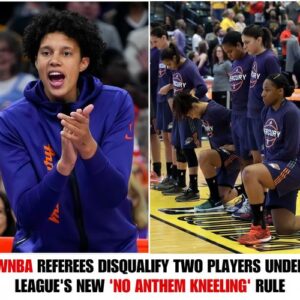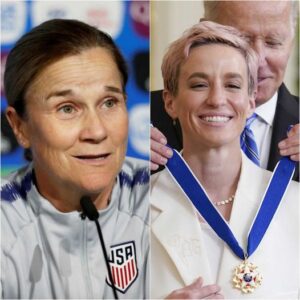Michael Jordan, the iconic basketball legend, has stirred controversy with a recent statement declaring that
“Any athlete who kneels for our National Anthem should lose their medal.”
This provocative comment has reignited the debate over athletes’ rights to protest and the boundaries of national symbols.
Jordan’s assertion, made during a high-profile interview, reflects his strong belief in respecting national symbols and traditions.
He argues that the national anthem represents the values and sacrifices of the country, and that athletes should honor this by standing during the anthem.

In his view, any act of protest during the anthem undermines its significance and, by extension, the achievements of those who have earned medals representing their country.
Supporters of Jordan’s stance believe that the national anthem is a moment of collective respect and unity, and that athletes should refrain from using it as a platform for protest. They argue that such acts of dissent can be perceived as disrespectful to the nation and its symbols, especially in the context of international sports events where national pride is prominently displayed.

Conversely, critics of Jordan’s comment argue that the right to protest is a fundamental aspect of free expression and that athletes, like other citizens, should have the freedom to use their platforms to address social issues. They view kneeling during the anthem as a powerful form of peaceful protest aimed at highlighting issues such as racial inequality and police brutality. For these critics, demanding that athletes forfeit their medals for exercising their right to protest undermines the principles of free speech and personal expression.
The debate surrounding Jordan’s statement underscores a broader national conversation about the role of patriotism and protest in sports. It raises questions about how to balance respect for national symbols with the right to advocate for social change.
As Jordan’s comments continue to provoke discussion, the clash between traditional values and modern forms of activism remains a complex and contentious issue. The impact of such statements on athletes, public opinion, and the intersection of sports and social issues will likely be a topic of ongoing debate in the months ahead.
In a startling and contentious outburst, Geno Auriemma, the renowned head coach of the University of Connecticut women’s basketball team, has made headlines with his outspoken criticism…
In a bold statement that has sparked conversations across the sports world, Brittney Griner, the renowned WNBA star, has expressed her belief that she deserves a spot…
In the latest chapter of his entrepreneurial saga, Elon Musk is reportedly considering the acquisition of ABC, one of the largest and most influential television networks in…
NBA’s New “No Kneeling Rule” Sparks Controversy as Two Players Are Ejected
In a surprising turn of events, two players were ejected from a recent NBA game for violating a new rule implemented by the professional basketball league. The…
Megan Rapinoe leaves America with the firm intention of never going back.
In a decision that has sent shockwaves through both the sports and social justice realms, Megan Rapinoe, the celebrated U.S. Women’s National Soccer Team player, has announced…
After the University of Texas, all students who knelt during the national anthem were rounded up and REMOVED FROM SCHOLARSHIPS.
The University of Texas (UT) has recently come under intense scrutiny for reportedly revoking scholarships from five athletes who knelt during the National Anthem to protest racial…











